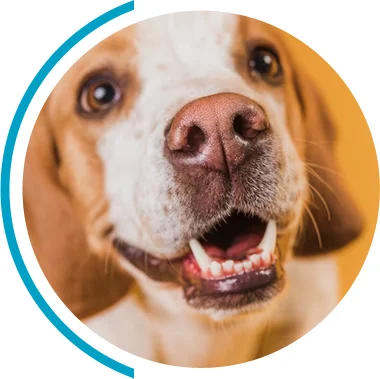Dog ownership brings joy and companionship, but many pet owners face the challenge of anxiety in their furry friends. Understanding how to manage and treat anxiety can significantly improve a dog’s quality of life. In Yorba Linda, various treatment options are available to help dogs overcome their anxiety and feel more secure.
Anxiety in dogs can manifest in various ways, and recognizing these signs is crucial for effective intervention. Understanding anxiety can empower pet owners to take proactive steps in addressing their dog’s discomfort. Just like humans, dogs experience a wide range of emotions, and anxiety can significantly impact their quality of life. By being attentive to their needs and behaviors, owners can create a more supportive environment that fosters emotional well-being.
Dogs express anxiety through a range of behaviors. Common signs include excessive barking, destructive behavior, pacing, and attempts to escape. Additionally, anxious dogs may exhibit physical symptoms such as trembling, panting, and hiding. These behaviors can often be mistaken for mischief or disobedience, but they are often cries for help from a distressed pet.
Other indicators include changes in appetite or bathroom habits. A dog that suddenly becomes withdrawn or overly clingy might be experiencing anxiety. Recognizing these signs early allows for timely intervention. Furthermore, some dogs may also display compulsive behaviors, such as tail chasing or obsessive licking, which can be a way of coping with their anxiety. Understanding the full spectrum of anxiety symptoms can help owners respond appropriately and provide the necessary support.
The causes of anxiety in dogs can be varied and complex. Often, it stems from genetics, early life experiences, or traumatic incidents. For instance, dogs that have been abandoned or severely neglected may develop anxiety due to their past. Even seemingly minor events, such as a loud thunderstorm or a visit to the vet, can trigger anxiety in sensitive dogs.
Other common causes include loud noises, changes in routine, and lack of socialization. Identifying the root cause of anxiety in your dog is essential to tailor an effective treatment plan. Additionally, factors such as age, breed, and individual temperament can also play a significant role in how a dog experiences anxiety. Some breeds are naturally more predisposed to anxiety, while others may be more resilient. Understanding these nuances can help owners better prepare and respond to their dog’s specific needs, ensuring a more harmonious living situation for both pet and owner.
Just as with humans, dogs can suffer from various types of anxiety disorders. Understanding the specific type of anxiety can help in determining the best treatment approaches.
Separation anxiety is one of the most common anxiety disorders in dogs. It occurs when dogs exhibit distress when left alone. This may manifest as barking, whining, or destructive behaviors, such as chewing furniture or urinating indoors.
Owners may notice these behaviors typically occur when they prepare to leave the house. Addressing separation anxiety often requires patience and training to help the dog feel secure when alone. Gradual desensitization techniques, such as leaving the dog alone for short periods and gradually increasing the duration, can be effective. Additionally, providing engaging toys or puzzles can help distract the dog and ease their anxiety during these times.
Noise anxiety is a prevalent condition where dogs react fearfully to loud sounds such as thunderstorms, fireworks, or even the vacuum cleaner. Dogs may try to hide or escape when they hear these noises.
Understanding the triggers for noise anxiety is critical. Creating a calm environment and introducing soothing background noise can help ease this type of anxiety. Some owners find success with anxiety wraps or calming pheromone diffusers, which can provide a sense of security. Training techniques that involve counter-conditioning, where the dog is gradually exposed to the noise at a low volume paired with positive reinforcement, can also help desensitize them to these frightening sounds.
Social anxiety in dogs can manifest as fear of unfamiliar people or other animals. Dogs suffering from social anxiety may avoid contact, bark, or display aggressive behavior when approached.
Working with a professional trainer can help in socializing dogs with anxiety issues, enabling them to become more comfortable in various environments. Socialization should be approached gradually, allowing the dog to observe new people and situations from a distance before engaging. Positive reinforcement, such as treats or praise, can encourage desired behaviors and help build the dog’s confidence over time. Additionally, group training classes can provide a structured environment for socialization, allowing dogs to interact with others while under the guidance of a knowledgeable instructor.
When self-treatment methods fall short, professional help is available. In Yorba Linda, various options exist for treating canine anxiety.
The first step in addressing anxiety is obtaining a professional consultation. A veterinarian can evaluate the dog’s behavior and health to rule out any underlying medical issues contributing to anxiety.
Vets may recommend various diagnostic tests, which can provide insight into the specific nature of the anxiety and help decide on the best treatment options available.
In some cases, medication can play an essential role in managing a dog’s anxiety. Vet-prescribed anti-anxiety medications may help to stabilize the dog’s mood and reduce stress levels.
Additionally, there are several supplements, such as calming chews and herbal remedies, that may provide relief without side effects. Discussing these options with a veterinarian ensures safe and appropriate use.
Behavioral therapy focuses on changing a dog’s reaction to anxiety-provoking situations. This therapy can include desensitization techniques, where dogs are gradually exposed to their anxieties in a controlled manner.
Consulting with a certified canine behaviorist may provide tailored strategies that can help dogs build resilience against anxiety triggers.
Many pet owners also explore home remedies to alleviate their dogs’ anxiety. While professional treatment is often beneficial, simple changes at home can make a significant difference.
Designating a quiet area in your home as a safe space can provide comfort to anxious dogs. This space should be filled with familiar items, such as blankets and toys, to create a sense of security.
Encouraging your dog to use this space during stressful times can help them associate it with relaxation and safety.
Engaging your dog in regular physical activity is vital for overall well-being and anxiety management. Exercise releases endorphins and helps to alleviate stress.
Incorporating mental stimulation through puzzle toys or training sessions can also distract dogs and keep their minds engaged, reducing feelings of anxiety.
Implementing calming techniques, such as deep pressure therapy or soothing music, can be effective in managing anxiety. Many dogs respond positively to gentle touch and cuddling, which can provide comfort during stressful situations.
Additionally, creating a calming routine can help in establishing predictable patterns that reduce anxiety in dogs. This consistency often allows dogs to feel more secure.
In conclusion, anxiety in dogs is a manageable issue, and understanding the signs and treatment options available is crucial. In Yorba Linda, pet owners have access to professional help and various resources to create a supportive environment for their dogs. By being attentive, proactive, and patient, owners can help their canine companions lead happier, more relaxed lives.
If your beloved canine companion is struggling with anxiety, remember that you’re not alone. At The Grounded Hound Canine Coaching, we understand the challenges you and your dog face. With a CTC from the Academy for Dog Trainers, an ABCDT from the Animal Behavior College, and specialized certifications in Separation Anxiety, we’re equipped to offer you the support and guidance you need. Our training philosophy is built on Patience, Kindness, and Consistency, ensuring a positive approach to building a strong bond between you and your dog. Don’t let anxiety stand in the way of a happy, fulfilling relationship with your furry friend. Contact Us Today and take the first step towards a calmer, more confident companion.

